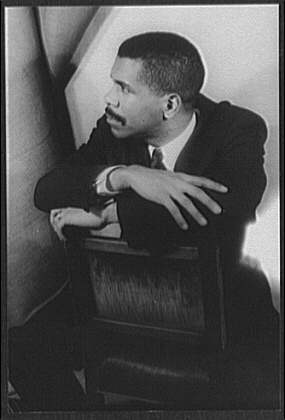William Melvin Kelley facts for kids
Quick facts for kids
William Melvin Kelley
|
|
|---|---|

William Melvin Kelley (1963)
|
|
| Born | November 1, 1937 Staten Island, New York City, New York, U.S. |
| Died | February 1, 2017 (aged 79) Manhattan, New York, U.S. |
| Occupation | Writer, educator |
| Alma mater | Harvard University |
| Genre | Novel, short story |
| Notable works | A Different Drummer (1962), dem (1967) |
| Notable awards | Anisfield-Wolf Book Award |
| Spouse | Karen (Aiki) Kelley |
| Children | Jessica (daughter), Cira (daughter) |
William Melvin Kelley (born November 1, 1937 – died February 1, 2017) was an important African-American writer. He wrote novels and short stories. He is most famous for his first novel, A Different Drummer, which came out in 1962.
Kelley was also a university professor. He taught creative writing to students. In 2008, he won the Anisfield-Wolf Book Award for his lifetime of writing. People also say that Kelley was the first to use the word "woke" in print. He used it in the title of a 1962 article in New York Times: If You're Woke, You Dig It.
Contents
Writing Career
While studying at Harvard University, William Melvin Kelley won an award for his creative writing. He received the Dana Reed Prize for a short story called The Poker Party.
His first novel, A Different Drummer, was published in 1962. He was only 24 years old then. In 1964, his collection of short stories, Dancers on the Shore, was released. His second novel, A Drop of Patience, came out in 1965.
Moving Abroad
In 1966, Kelley worked for the Saturday Evening Post. He was asked to report on the trial of the men accused of killing Malcolm X. Kelley became convinced that two of the accused were being treated unfairly. This made him lose faith in the justice system. He then decided to move out of the United States.
In 1967, Kelley published his third novel, dem. After this, he moved to Paris, France. There, he taught American literature at the University of Paris.
Teaching and Film Work
Kelley was also a dedicated teacher. He taught writing at several colleges. These included the State University of New York at Geneseo and the New School for Social Research. He also taught at Sarah Lawrence College from 1989 until he passed away in 2017.
In 1988, Kelley acted in a film he also wrote and produced. It was called Excavating Harlem in 2290. He also helped create The Beauty That I Saw. This film was made from his video diaries about Harlem. It was shown at the Harlem International Film Festival in 2015.
Even though Kelley published only four novels and one book of short stories, he never stopped writing. He mentioned in a 2012 interview that he had finished two more novels. However, these books have not been published yet.
The writer Robert E. Fleming said that William Melvin Kelley used "Black comedy" to show how silly American ideas about race could be. Kathryn Schulz, writing for The New Yorker, called Kelley "the lost giant of American literature."
Personal Life
William Melvin Kelley was born on November 1, 1937. He was born in a hospital on Staten Island in New York City. His mother, Narcissa Agatha Garcia Kelley, was a patient there. His father, William, was an editor for the Amsterdam News newspaper for many years. His family was also involved with the Methodist Episcopal church.
Kelley grew up in The Bronx, a part of New York City. He lived with his parents and his grandmother. His grandmother was a seamstress. She was the daughter of a former slave and a Confederate colonel.
Education and Family
Kelley went to the Fieldston School in New York. This school was mostly white students. He became the student-council president in his last year. He was also the captain of the track team.
After high school, he went to Harvard University. He studied there until 1960. His mother passed away during his second year. His father died when he was a senior. Kelley changed his major four times. He left Harvard in 1960, six months before graduating. He wanted to become a writer.
On December 15, 1962, Kelley married Karen Gibson. They had met briefly as teenagers. Karen was studying art to become a painter. She later became known as Aiki. They moved to Rome in 1963. They returned to the United States after one year.
Their first daughter, Jessica, was born in February 1965. Their second daughter, Ciara, was born in May 1968 in Paris. The Kelleys lived in the same building where author Richard Wright had lived years before.
Life in Jamaica and Return to New York
By 1968, after the deaths of Martin Luther King Jr. and Robert F. Kennedy, Kelley and his wife decided not to raise their family in the U.S. They had planned to move to Africa. Instead, they moved to Jamaica. While there, Kelley and his family became interested in Judaism. They lived in Jamaica until 1977.
In 1977, they moved back to New York. They lived in an old apartment building in Harlem. Later, they moved to the Dunbar Apartments in Harlem.
Death
William Melvin Kelley passed away in Manhattan on February 1, 2017. He was 79 years old. He died from problems related to kidney failure.
 | Isaac Myers |
 | D. Hamilton Jackson |
 | A. Philip Randolph |

